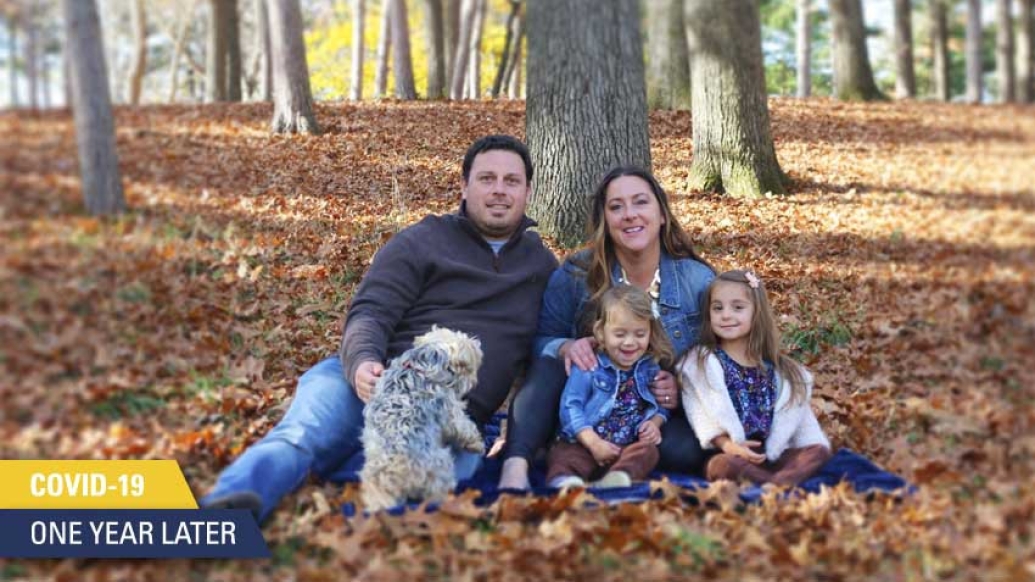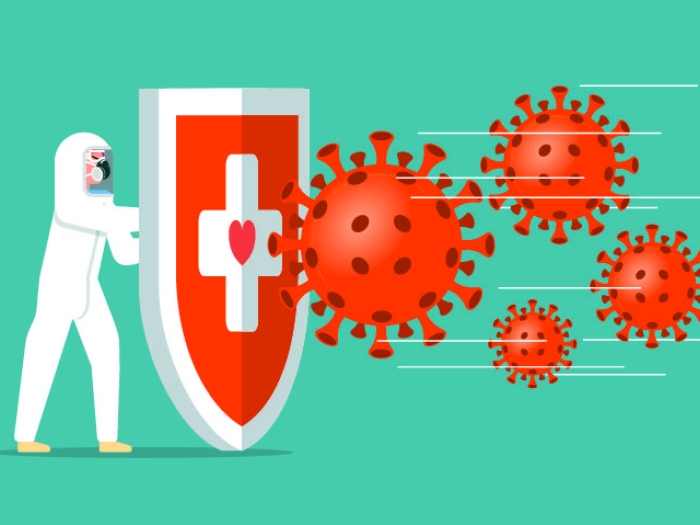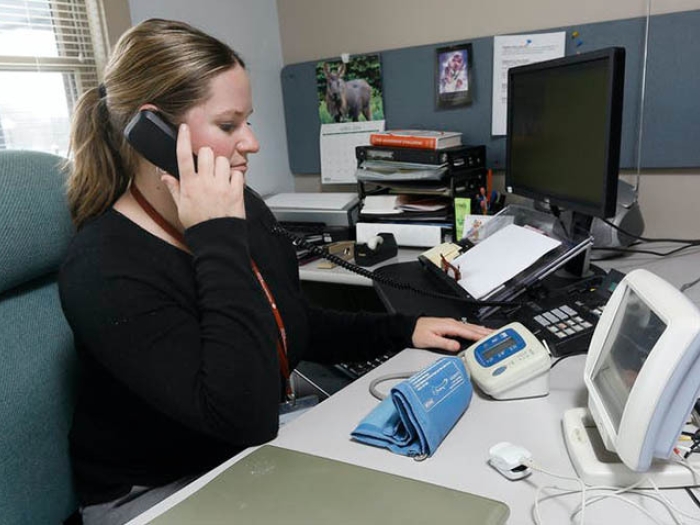Almost a year after being one of the first patients diagnosed at Michigan Medicine, a doctor shares how he and his family are doing now.
10:40 AM
Author |

This article is part of a series marking one year since the COVID-19 and pandemic began. Read more articles on the coronavirus from the Michigan Health and Michigan Health Lab blogs.
Eleven months after he was put on a ventilator for a particularly bad case of COVID-19, Eugene Vovchuk, M.D., found himself back in the intensive care unit — this time as the doctor, again. The shift back from patient to critical care doctor gave him a new appreciation for what patients and their families go through.
"I'm pretty lucky to have recovered," he says.
It wasn't easy, with six months of intense physical therapy, but he was able to avoid some of the reported long-lasting symptoms that have made headlines, and is only on one new medication now.
A scary March and uncertainty about the future
Even though her husband did recover, it's still hard for Brooke Vovchuk to talk about the past year.
Eugene doesn't remember the moments last March when he was sickest, but Brooke sure does. She was the one FaceTiming with his Michigan Medicine providers every day, getting a glimpse through the screen of her critically ill husband who didn't always recognize her.
"It was the scariest time of my life," Brooke says.
SEE ALSO: Keeping Our Patients Safe During COVID-19
She had a lot of tough decisions to make about his care, while also keeping his parents and her parents updated, and making sure their toddler girls stayed healthy and didn't pick up too much of her stress.
"I needed to get myself through it and get my children through it," she says. And she and her husband were just starting their family; she hadn't thought to ask him what kind of funeral he wanted. She didn't want to have to make any of those sorts of decisions.
"I had to keep changing my attitude and I had to keep my faith."
Brooke would set an alarm early in the morning so she could get her update on Eugene between nursing shifts. Each morning she'd hope for a small victory, like having his oxygen turned down from 70% to 65%, meaning he needed a little less help breathing than he had the day before. After eight days, he was finally breathing on his own, and he'd soon be transferred to a regular hospital room.
SEE ALSO: One Year Later: Michigan Medicine's First COVID-19 Patient
"But within minutes of being extubated, some of his colleagues were saying he's not necessarily out of the woods yet," she remembers. "It wasn't easy dealing with COVID-19 so early on because no one knew what to expect."
Moving forward with one new medication and strong family bonds
Vovchuk says he feels lucky that the only new health issue he's dealing with is high blood pressure.
And it turns out, he likes tofu and lentils, and enjoyed doing the Veganuary challenge, even though that meant also cutting out dairy.
SEE ALSO: Seeking Medical Care During COVID-19
"I have a cardiologist now, and I'm hoping with the dietary changes and continued exercise I'll get off of the new medication," he says.
He also started 2021 with a positive side effect of months off of work: stronger, closer relationships with his loved ones.
Going from his harried schedule as a critical care anesthesiologist to not leaving his home for the whole summer meant an opportunity to spend countless hours watching and playing with their now-2- and 4-year-old daughters.
"Typically we don't get that kind of time as a family," Brooke says. "He has a much stronger bond with our daughters now."
"I haven't had a summer off since college. I was there in the morning, and I could put them in bed at night; it was great," Eugene remembers.
Back to work was 'like riding a bike'
By the end of October, Vovchuk was able to go back to the Detroit hospital where he works for full-time shifts and 24-hour calls. In February 2021, he made his first rounds in the intensive care unit since his own COVID-19 experience nearly a year earlier.
Returning to an ICU in the role of provider instead of patient was a little jarring at first, "but then it was like riding a bike," Vovchuk says. "I thought I would have some flashbacks or PTSD, but luckily I didn't."
He still remembers the vulnerability he felt as a critically ill patient, and the worry his wife and loved ones had shouldered.
Like Podcasts? Add the Michigan Medicine News Break on iTunes, Google Podcast or anywhere you listen to podcasts.
"My experience made me more conscientious of what the patients' families are going through. I'm now more aggressive about encouraging physical therapy and occupational therapy right away because I know how quickly you can deteriorate being in the hospital."
Brooke says that's another small silver lining: "He can be a better advocate for his patients now."
And caring for people with COVID-19 after recovering from it reminds Vovchuk of how grateful he is today for the large and small things in his life. The COVID-19 vaccines becoming available definitely help his outlook, too.
"I knew I had some protection against COVID-19 having had it already, but I also knew I could get it again, so it was a relief to get a vaccine in my role as a physician," he says.
And now that bit of extra confidence means Brooke doesn't have to call him at work to double check he is eating lunch alone or wearing his PPE all the time, like she did for his first few shifts back.
"This changed our lives on so many levels," Brooke remembers.

Explore a variety of health care news & stories by visiting the Health Lab home page for more articles.

Department of Communication at Michigan Medicine
Want top health & research news weekly? Sign up for Health Lab’s newsletters today!





